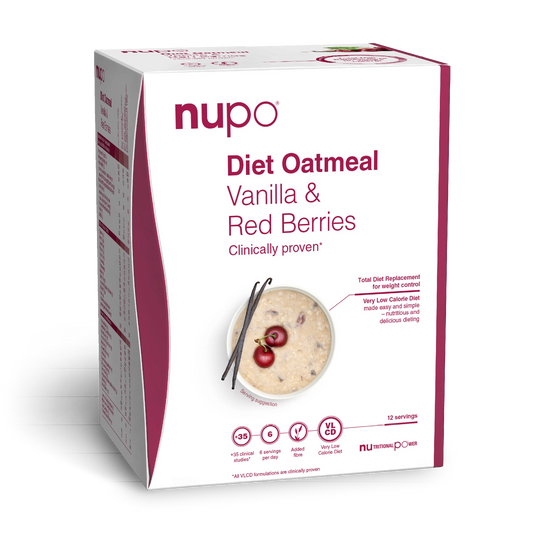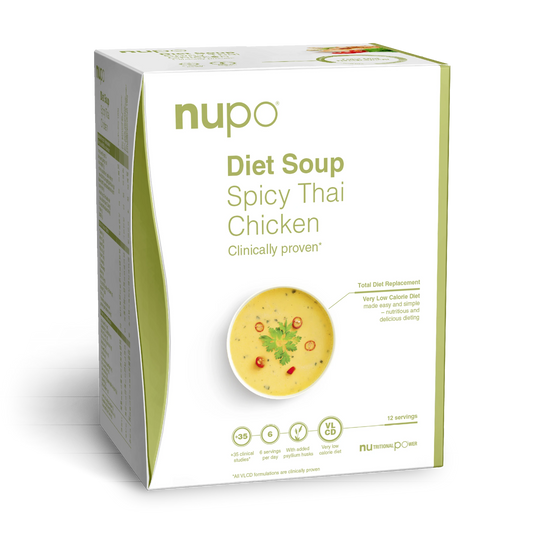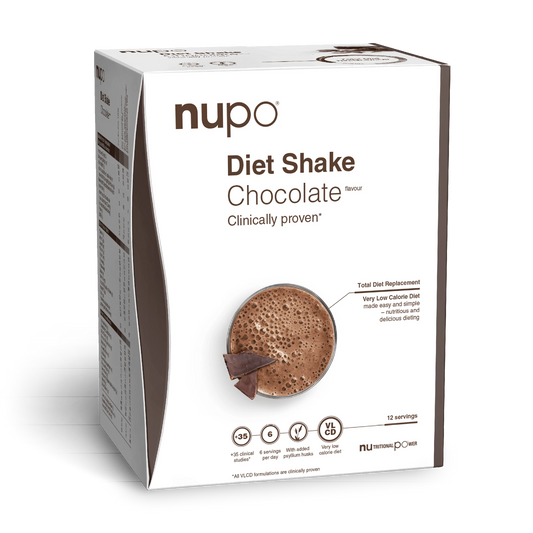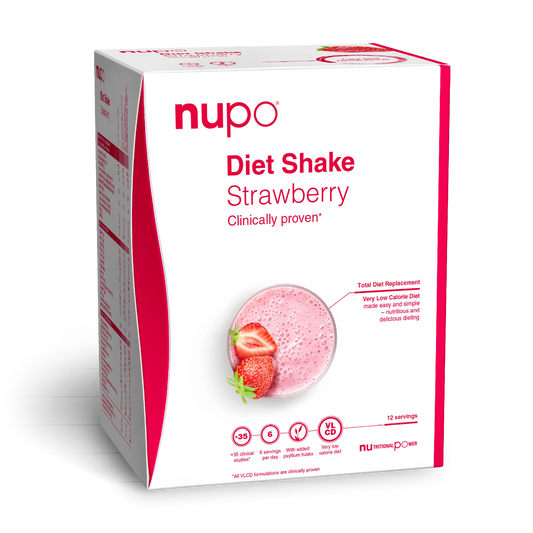Confused about the difference between protein bars and meal replacement bars? You’re not alone – many people think they’re the same thing.
But in reality, protein bars are snacks, while meal replacement bars are designed to fully replace a meal. In this episode, we explain how to tell the difference, what to look for on the label, and how to avoid picking a “meal” that leaves you hungry 30 minutes later. This is a must-listen if you’ve ever stood in the bar aisle feeling unsure.
🎧 Listen now and learn how to choose the right bar for your goals.
Welcome to 10 Minutes to Change, small steps, big results. In each short episode, we tackle everyday challenges, share practical tips, and explore science-based insights to help you build a clear and balanced lifestyle. In this episode, we'll take a closer look at meal replacement bars and protein bars. What's the real difference between them? And when does it make sense to choose one over the other? We'll explore how they work, what role they can play in your diet, and how to use them in the right way for your goals.
Ever found yourself, um, standing in the supermarket aisle, just staring at all those bars?
Oh, yeah.
Some say meal replacement, others shout protein boost, and you're thinking, "Hang on. Is this protein bar actually a meal? Or is my meal bar just, you know, a pricey snack?"
It's a super common question.
Totally. So today, we're digging into the sources to cut through that confusion. We wanna help you make smarter, easier choices for your health, your nutrition, especially with, well, how busy life gets.
You're absolutely right. And it's a key point because, you know, lots of people think they're basically interchangeable.
Yeah.
But they're really not. I mean, both are great tools, absolutely. But they're great for very different reasons. So today, we'll break that down, look at some examples, and have a bit of, uh, real talk about it.
Okay, let's do it. Let's start with meal replacements. What is a true meal replacement? Because we're not just talking about something to, like, tide you over it.
Exactly. Not just a snack. A proper meal replacement is specifically designed, formulated to fully substitute a main meal. Think your lunch, maybe dinner, even breakfast for some people.
Okay, substitute a whole meal?
Precisely. They're built for what you could call, um, nutritional completeness. They have to provide the whole deal.
The whole deal, meaning?
Meaning the right balance of macronutrients, that's your protein, carbohydrates and fats, and a good spectrum of essential vitamins and minerals. The idea is that the bar, or maybe it's a shake, needs to genuinely act like that balanced plate of food you're skipping.
Right. So it actually keeps you full and gives you what you need.
Yes. Otherwise, you know, you'll be feeling peckish again in 20 minutes.
Been there.
And that just leads to grabbing whatever's nearby—often over snacking.
Hmm.
Defeats the purpose.
And what's interesting is how, uh, strictly these are regulated in some places, like in the EU, right? They can't just call anything a meal replacement.
That's spot on. There's a legal definition. They have to meet really strict nutritional standards.
What kind of standards are we talking about?
Well, specific calorie ranges, usually between 200 and 250 calories per serving. They also need to cover at least, I think it's 30%, of your daily vitamin and mineral needs.
30%? That's quite a lot for one bar.
It is. And crucially, they need that balanced macronutrient profile we mentioned.
Yeah.
The protein, carbs, and fats have to be in the right proportions.
Okay, so there's some serious science packed into one bar or shake then.
Absolutely.
All right.
And, and those standards are essential, really. If you're genuinely skipping a whole meal, you need to trust it's giving your body sustained energy and, you know, all those essential bits. It's not just about feeling full now. It's about proper nutrition over time.
Makes sense. So thinking practically, when would someone actually reach for one? Like, what are the best use cases?
Oh, they can be a lifesaver when you genuinely have zero time for lunch. Picture this. Crazy morning, school drop off, back to back meetings.
Uh-huh.
Suddenly it's 2:00 PM and you haven't eaten. A meal replacement bar is balanced, it's structured nutrition, and you can eat it super quickly, like three minutes flat, even at your desk.
So it stops you skipping lunch altogether or just grabbing, I don't know, a packet of crisps?
Exactly. It's about not sacrificing decent nutrition just because time is tight. We actually have a good example. Um, Anna, she's a teacher.
Okay.
She keeps Nupo One Meal Bars, which are, you know, designed around that exact nutritional balance, in her desk drawer. Grabs one during her short planning break. She says it keeps her full right through till dinner, focused in the afternoon. And it helps her stay on track with her weight goals too. It's literally her lunch, but it fits in her handbag.
That's a great example. So easy rule of thumb then, meal replacement equals full meal. Simple as that.
Pretty much.
Okay, so if meal replacements are the full meal substitute, where do protein bars fit in? Because they feel different, they look different sometimes. They serve a totally different purpose, don't they?
They absolutely do, a completely different job. Protein bars are primarily there to supplement your day, not replace a whole meal.
Supplement, like a top up.
Yeah, or think of it as a healthier snack choice.
Yeah.
You know, instead of reaching for that sugary biscuit you were eyeing up at 3:00 PM.
Guilty.
We all are. But what's really key with protein bars is how incredibly varied they are. They come in all shapes and sizes, honestly.
How varied?
Well, you can get tiny ones, maybe 60 calories, just a little bite. Then you get others that are pretty hefty, maybe 300 calories, packing 25 grams of protein. Often covered in chocolate and nuts, almost like a candy bar, but with protein.
Right, and that variety must make it tricky, which brings us to a really crucial difference, doesn't it? The regulation.
Yes. This is the key distinction. Protein bars are generally not regulated in the same way meal replacements are.
What does that mean in practice?
It means a bar can be labeled protein bar.
Yeah.
It can be packed with protein, sure, but it might have virtually no fiber, no significant vitamins or minerals, maybe no complex carbs. It could just be protein and a load of sugar.
Wow, so you really, really need to check the label on a protein bar.
Always. You absolutely have to. You might be surprised, sometimes shocked at what's actually in there or what's not in there.
Have you ever been caught out?
Oh, definitely.
[laughs]
I remember grabbing one once thinking, "Great, this looks substantial. It'll fill me up." Honestly, I was starving again 30 minutes later.
Oh, no.
Yeah, and properly grumpy, a bit cranky. It really hammered home that you can't just assume t-... based on the name protein bar, you have to look at the details. What else is in it? Is it actually satisfying?
Ugh, I know that hangry feeling when your brain just tanks and all you want is sugar. So avoiding that, when are protein bars actually the perfect choice? When are they a lifesaver?
Okay, so they are amazing in specific situations. Think pre-workout or post-workout fuel.
Ah, for the gym.
Exactly. They give you that quick hit of energy and, importantly, the protein your muscles need to repair and grow after exercise. Ideally, you'd look for one with maybe 15, 20 grams of protein and, importantly, not overloaded with sugar.
Okay. Pre or post-workout. Anywhere else?
That late afternoon slump, around 4:00 PM, perfect time for a protein bar as a snack. A full meal replacement bar would probably be overkill then.
Right. You don't need another meal just before dinner.
Precisely. You just need something to bridge the gap, maybe manage a craving and give you a bit of an energy boost. It's about fitting the tool to the specific need at that moment.
So like your friend Josh, you mentioned, the gym guy.
Yeah, exactly like him. Keeps one in his car's glove box, has it right after his spin class. It's quick fuel, helps his muscles, and crucially, it stops him from making a beeline for the sweets at the petrol station on the way home. Smart move.
Definitely. So the summary for protein bars is clear then, protein bar equals snack or supplement.
Spot on, snack or supplement.
Okay, so this really clarifies things. They might sit next to each other on the shelf, look kind of similar, but they are built for completely different jobs.
And that's the core insight, isn't it? A lot of people think they're interchangeable, but as we've discussed, they're really not. Both are great options.
But for very different reasons.
Exactly.
Yeah.
Which is why it's so, so important to choose the right tool for the right moment. You just got to ask yourself—what's my goal right now?
Is it weight loss support? Is it fueling a workout? Or is it just getting through a crazy day without skipping meals entirely?
Precisely. Your goal dictates the best choice.
And it doesn't have to be strictly one or the other throughout your week, does it? You could mix and match.
Absolutely. It's definitely not an either/or situation. You can totally use a combo approach.
How would that look?
Well, some people find using meal replacements works brilliantly for, say, breakfast and lunch on busy weekdays when time is really short.
Okay.
But then maybe they'll have a protein bar in the late afternoon if cravings kick in or before they head to the gym after work.
So you build a strategy that fits your life, your routine?
That's it, exactly. Once you understand the distinct purpose of each, you're empowered. You can make really informed choices that genuinely support your personal health goals and energy levels day-to-day. It's about being conscious about what you're grabbing.
So wrapping this up, what's the main message for you listening? I think the key takeaway is don't just grab whatever bar is nearest when you're hungry or rushed.
Mm-hmm. Pause for a second.
Yeah. Think, what do I actually need right now? Choose what suits your goal for this moment.
And if you want to delve even deeper into this, compare specific products or get more tips. The Nupoedia blog section on nupo.co.uk is a great resource. Lots of helpful articles and real life examples there.
Good tip. And sometimes trying things out helps too, right? See what actually works for your taste and your schedule.
Mm-hmm.
Maybe look for taster packs if they're available.
Definitely a good way to find your fit.
So the big question, meal replacement or protein bar? The answer, maybe unsatisfying but truly is, it depends.
It really does.
But hopefully after this deep dive, you feel much more equipped to know what it depends on for you. Think about your day, your needs, your goals. Now you know the when and the why behind making that choice.
Thanks for listening to 10 Minutes to Change: Small Steps, Big Results, where health meets simplicity. Visit nupo.co.uk for inspiration, support, and smart nutrition made for real life. Until next time, take care of you.














